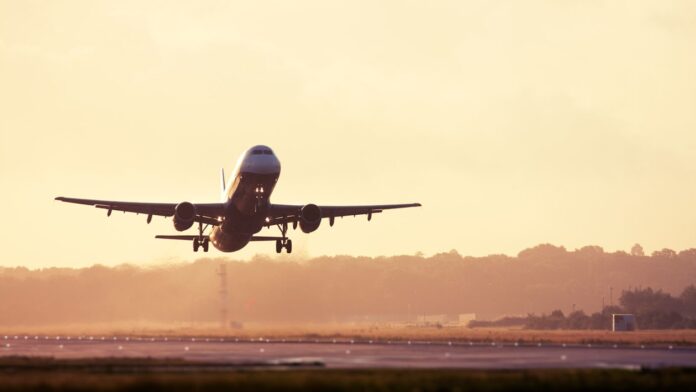Reading the news at the moment, you might think that the travel sector is facing the perfect storm. Rising fuel prices, falling real (after-inflation) wages and continuing disruption from the pandemic are putting pressure on the sector, which has barely had a chance to recover from the dark days of 2020.
But the numbers tell a different story. Travel organisation Abta notes that travel bookings for this year are already approaching pre-pandemic levels.
Unfortunately, the queues at airports and ports around the UK seem to suggest that some parts of the travel industry were unprepared for the rebound. They will need to get their houses in order quickly as companies like Jet2 (LSE:JET2) are ramping up their schedules for the rest of the year to meet pent-up consumer demand.
Which companies offer the best bets on a recovery?
In 2019, hiring in the travel and tourism sector accounted for one in four of all new jobs around the world.
Just under 11% of the global working population was employed, directly or indirectly, by the sector. The pandemic hit the market hard. Spending crashed by 70%, inflicting estimated losses of $4.5trn across the industry, and costing 62m jobs globally.
International travel has been recovering in fits and starts ever since, and there have been several false dawns along the way, catching out any investors who were brave (or foolish) enough to try to pick the bottom.
Travel companies pulled out all the stops to survive the crisis and many have been left with piles of debt and deep scars. Tui (LSE: TUI), Europe’s biggest holiday company, had already come under fire for using off-balance sheet structures to hide debt before the pandemic. It was then bailed out not once but three times by the German government. Each cash infusion came with its own set of limitations.
As the travel and tourism industry recovers, the firm is starting to repay its obligations, although management is complicating matters further by raising a €500m fund from institutional investors to finance new hotels. This will add yet another layer to the company’s complex financing arrangements.
So, while Tui might appear attractive as a way to invest in the sector’s recovery, I’m put off by its complex balance sheet.
Customer-first approach yields results for Jet2
Instead, my favoured stock in the sector is Jet2 (LSE:JET2), followed closely by Wizz Air (LSE:WIZZ).
Jet2 went out of its way to help its customers when the pandemic struck. A travel refund cancellation survey of more than 77,000 people by MoneySavingExpert.com rated the firm number one for refunds in 2020. Jet2.com was also recognised as the only UK airline to promptly provide refunds without significant backlogs, following a review by the UK Civil Aviation Authority (CAA).
I like to invest alongside companies that look after their customers, as this almost always pays off in the long term. Jet2’s latest trading update shows the way that it treated its customers during the depths of the pandemic is already paying dividends.
On-sale seat capacity for this summer is roughly 14% higher than summer 2019 levels. Average load factors (a key metric indicating, basically, how full a company’s planes are) for the summer 2022 season are currently just 2.5% behind summer 2019 at the same point (against a 14% rise in seat capacity). Booking momentum is also accelerating and pricing is “robust.”
Notably, Jet2 also has more than £1bn of cash on its balance sheet to deal with any unforeseen developments unlike other operators in the sector, such as Tui, easyJet (LSE:EZJ) and IAG (LSE:IAG) which all have a fair bit of leverage.
As the travel and tourism sector tends to be seasonal, having a strong balance sheet and access to additional liquidity is vital. Most operators tend to lose money over the winter season, relying on a strong summer season to replenish their working capital. This seasonality can cause problems if there are any unforeseen challenges (like, say, a global pandemic or a sudden spike in fuel costs).
A low-cost operator with impressive green credentials
Like Jet2, Wizz also has a cash-rich balance sheet. The low-cost airline reported a cash position of €1.4bn at the end of December 2021, giving it plenty of financial flexibility and room to expand its network further across Europe (net debt totalled €1.8bn at the end of September 2021, 36% of assets). In March, Wizz carried 2.5m passengers, representing a 416% jump compared to March 2021, with a load factor of 86.2%.
Wizz is investing heavily in a new, fuel-efficient fleet and pushing down prices for consumers in the process. In the six months to the end of September, the company reported average ticket revenue per customer of €33.1.
By comparison, easyJet’s average revenue figure per passenger for the same period was around €60 while Ryanair’s (ISE: RY4B; Nasdaq: RYAAY) take in 2020 was €57. As consumer budgets come under increasing pressure, Wizz’s lower price point could draw consumers to the brand.
The airline also reports its CO2 emissions per passenger/km on a monthly basis. It claims to have the lowest level of CO2 emissions of all its competitors, thanks in part to its new fleet. In a world where consumers are increasingly concerned about their carbon footprint and want to align with responsible brands, this could become a competitive edge.
The travel industry is not out of the woods yet, and there are plenty of headwinds to navigate over the next few quarters, but green shoots are starting to appear. By focusing on their customers, Jet2 and Wizz may be able to pull ahead of their rivals as the market recovers. They also have the financial headroom to navigate any further challenges along the way and take advantage of growth opportunities as they emerge.










